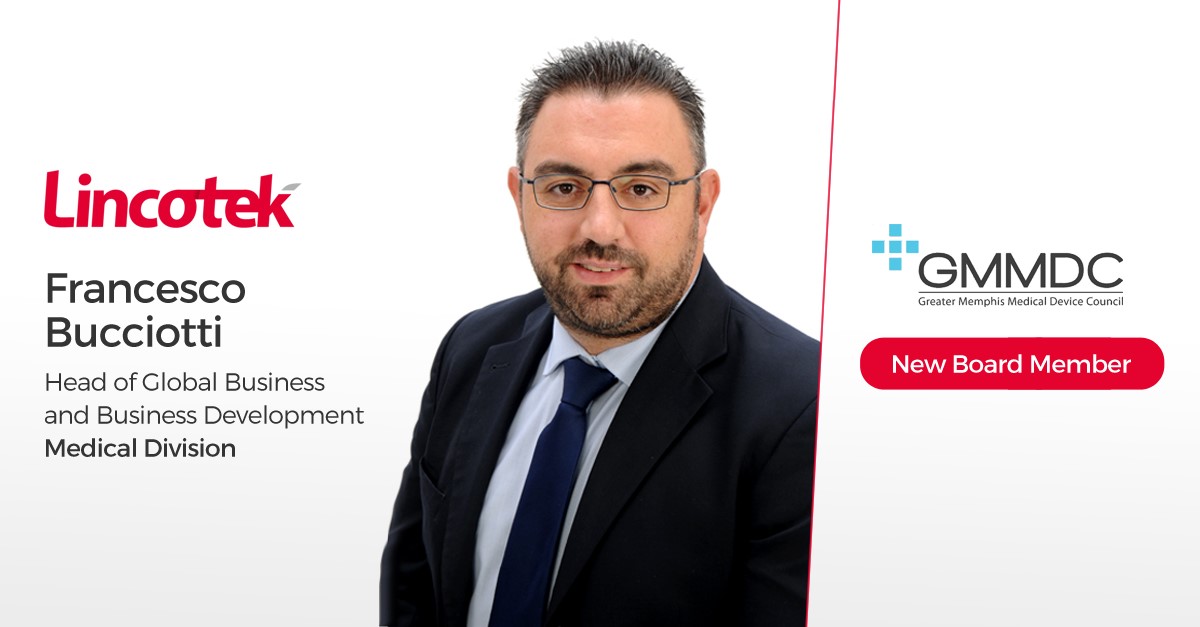- In 2024, 67 companies were awarded the “Best Managed Companies” (BMC) title by Deloitte Private.
- The BMCs are located throughout Italy, with the highest concentration in Lombardy (25% of the total), Emilia-Romagna (22%), and Veneto and Piedmont (both 10%).
- 49% of the BMCs operate in the manufacturing sector.
- 76% of the BMCs expect revenue growth in the coming year.
- Around 3 out of 5 companies are family-owned; 45% have participated in the ELITE-Euronext Group program; 1 in 10 is publicly listed, and 13% are backed by private equity funds.
Milan, October 9 – The ambition behind the “Best Managed Companies” Award is to reward entrepreneurial excellence in the national landscape and foster a structured and long-term growth path. This afternoon, the seventh annual ceremony will take place at Palazzo Mezzanotte, home of Borsa Italiana – Euronext Group. At the event, Deloitte Private, in collaboration with ELITE-Euronext Group, Piccola Industria Confindustria, and with methodological and strategic support from ALTIS Graduate School of Sustainable Management at the Catholic University of the Sacred Heart, will present the Best Managed Companies Award to 67 Italian companies.
“This seventh edition highlights an excellent entrepreneurial culture in our country. By analyzing the parameters that define the Award and are crucial for business management, we have awarded 67 companies that symbolize our productive achievement. In addition to a solid base of previously awarded companies, which continue their multi-year growth journey and demonstrate how this award values constructive business management over time, new high-profile companies have joined. More than a fifth of the awardees, in fact, are companies that have joined this year, thanks to their strong and ambitious management capabilities,” comments Ernesto Lanzillo, Deloitte Partner and Leader of Deloitte Private for the Central Mediterranean region (Italy, Greece, and Malta).
Evaluated based on the parameters of ‘Strategy’, ‘Capabilities and Innovation’, ‘Commitment and Corporate Culture’, ‘Governance and Performance Measurement’, ‘Corporate Social Responsibility’, ‘Internationalization and Supply Chain’, this year’s companies were selected by a panel of experts including Marta Testi, CEO of ELITE-Euronext Group; Fabio Antoldi, Full Professor of Business Strategy and Entrepreneurship at the Faculty of Economics and Law at the Catholic University of the Sacred Heart; and Renato Goretta, Vice President of Piccola Industria Confindustria.
“The evaluation criteria devised and adopted by Deloitte experts and the jury, which led to the recognition of these 67 Italian companies for their managerial skills, are elements we consider fundamental for companies operating in a complex environment like today’s,” says Andrea Restelli, Deloitte Partner and Head of Italy’s Best Managed Companies program. “At a time when the emergence of new technologies is shaping new horizons and business opportunities, organizations must have leadership that is prepared and responsive to these new trends, as well as the capacity of the entire organization to adapt and reshape its structure in line with new priorities,” Restelli adds.
Profile of the Best Managed Companies
This year, the 67 Best Managed Companies (BMCs) have a geographical distribution concentrated 36% in the Northwest, 37% in the Northeast, and 13% both in Central and Southern Italy. The top three regions for entrepreneurial excellence are Lombardy, where 25% of the BMCs are based, Emilia-Romagna with 22%, and Veneto and Piedmont, both hosting 10% of the companies.
Half of the BMCs (49%) are in the manufacturing sector, followed by construction, trade, and the transport and supply of electricity, gas, steam, and air conditioning (7%). Other industries – such as healthcare and social assistance (4%), professional, scientific, and technical services, agriculture, forestry, and fishing, information and communication services, defense, as well as water supply, waste management, and remediation activities – are also represented, each accounting for 1%. Regarding company size, 37% of the BMCs have between 50 and 249 employees, while 61% employ more than 250 people. Only 1% of the companies have a workforce of up to 49 employees.
Around 3 out of 5 companies are family-owned, and 45% have participated in the ELITE-Euronext Group program. Additionally, 13% are backed by private equity funds, and 1 in 10 is publicly listed, with 57% on Euronext Growth Milan (EGM), 28% on the STAR segment, and 14% on Euronext Milan (EXM). According to interviews with the BMCs, 76% expect revenue growth next year, and more than half are highly confident in their success over the next two years.
Evaluation Criteria for Best Managed Companies
“When analyzing how the BMCs perform against the Award’s evaluation criteria, it becomes clear that improving productivity and competitiveness often revolves around innovation and technology. The process of generating new value and improving competitive positioning cannot be separated from a company’s ability to leverage innovation and reap the benefits of ongoing digital transformation. This path also allows for the gathering of new ideas and initiating new investments, fostering collaborations within the business ecosystem with various stakeholders,” says Restelli.
“Operating in an environment of ‘extended’ competition, where the boundaries between traditional sectors are increasingly blurred, being able to embrace the digital challenge is crucial for keeping pace with high-performing companies and unlocking full potential. In this regard, BMCs recognize the importance of investing in digital skills and training their workforce so that digitalization becomes part of the company’s DNA. Emerging technologies, such as AI, can offer substantial contributions to business growth, but they also require companies to be mindful of the associated risks and ensure alignment with relevant regulations, like the NIS2 Directive, which will demand significant investments in cybersecurity governance and safeguards,” Lanzillo concludes.
Strategy – When asked about the key differentiating factors for their business strategy, BMC leaders highlighted the importance of investing in technology and innovation (79%) and fostering a corporate culture at all levels (75%), with 69% also emphasizing the strong involvement and commitment of their employees. These factors enable companies to continue growing and successfully face future challenges. Among these, BMCs identify the ability to attract, hire, and retain talent (76%) as a priority, followed by strengthening and developing management (72%) and investing in new products and services (67%). Additionally, leaders cite the need to enhance governance and sustainability strategy, as well as expand into new international markets (both at 58%).
To operate in the new competitive landscape and tackle future challenges, almost all (97%) of the BMCs prioritize upskilling and reskilling their workforce, with nearly 9 out of 10 (87%) mentioning the digitalization of business processes and 84% focusing on improving corporate well-being services.
Skills and Innovation – To improve productivity, BMCs report focusing their investments on innovation (87%), technology (84%), and organizational structure (72%). Furthermore, the majority of companies (78%) have implemented a formal process to continuously encourage and identify new business ideas. Over the past 12 months, leaders have directed their investments towards areas such as R&D (84%), operations (75%), and the acquisition or development of advanced technologies (55%). In terms of future investments, BMC leaders are most likely to allocate resources in the next 12 months to data analytics and business intelligence solutions (87%), business process automation (72%), and CRM systems (67%).
Commitment and Corporate Culture – Corporate culture is considered one of the most important elements for entrepreneurial success, with 82% of respondents emphasizing its critical role in achieving business success. Over the last 12 months, BMCs have engaged employees through various initiatives, such as reward systems (81%) and team-building activities (79%), with a particular focus on organizing and delivering functional training (96%). This aligns with the fact that 9 out of 10 companies prioritize employee skill development and aim to give high-performing employees increasingly challenging responsibilities.
Regarding performance evaluation, over 90% of BMCs conduct one or more formal performance reviews per year, and 40% report administering employee satisfaction surveys in the last year. To motivate and reward their employees, nearly all BMCs offer compensation packages that typically include variable pay components and bonuses (94%) and access to a company car (93%). The primary strategy for talent retention and attraction is the promotion of a corporate culture based on open and transparent communication (87%).
Governance and Performance Measurement – BMCs express high satisfaction with their internal financial reporting systems, with around 7 out of 10 considering them very reliable. Formal meetings (93%) are the most commonly used tool to communicate management decisions. Regarding future challenges, BMCs identify rising raw material costs (52%), geopolitical uncertainty (47%), and talent acquisition and retention (43%) as the top threats to growth over the next 12 months.
Most BMCs describe their risk approach as moderate (49%). In today’s complex environment, implementing best practices for risk management has become crucial. Nearly all (97%) BMCs focus on maintaining a solid balance sheet and cultivating strong relationships with stakeholders to ensure financial stability. Furthermore, 87% aim to implement effective financial management processes to mitigate risks, and 72% reinvest in Capex or innovation.
Corporate Social Responsibility (CSR) – For around three out of five BMCs, sustainability is deemed essential to the success of their organization. Many companies have formal measures in place to assess and communicate their social and environmental impact, with 63% using a sustainability report. Additionally, 58% include sustainability information on their corporate website. Among those that do not yet publish a non-financial report (e.g., sustainability, integrated, or social balance sheets), many are considering doing so.
Looking ahead to the next five years, BMCs highlight key risks and opportunities across the three ESG components: for environmental (E), energy-related issues are a priority; for social (S), the focus is on talent attraction and retention; and for governance (G), the priority is integrating sustainability criteria into the supply chain. From a management perspective, 46% of BMCs report having a formal sustainability plan that outlines commitments and objectives with a specific timeline, and 49% have established sustainability governance with a dedicated Sustainability Manager.
Internationalization and Supply Chain – BMCs primarily operate within Italy (53%), while 25% serve the European market. About half (48%) seek to expand sales and clientele abroad, and one in four (25%) pursues international partnerships with new suppliers. A smaller proportion localizes operations abroad (27%) or recruits internationally (22%). When entering foreign markets, 74% of BMCs rely on direct exports, while other methods include direct investment (44%), indirect exports through consortia or trading companies (36%), and strategic agreements such as joint ventures, licensing, or franchising (29%).
Approximately half of the BMCs belong to at least one supply chain (36% to one, and 13% to more than one), while another 3% are considering joining one. The majority of these supply chains are in industrial mechanics (30%), agri-food (15%), energy (15%), furniture and design, and pharmaceuticals (both 12%). In 85% of cases, the supply chains are governed by quality protocols and certifications, focusing primarily on product and process quality (85%), governance, and raw material selection and traceability (64% each). Even companies not part of a supply chain monitor quality aspects, with 88% serving clients who require questionnaires on product and process quality, governance, and financial stability, or ESG-related ratings.
Regardless of supply chain participation, over 70% of BMCs collect ESG-related information during supplier selection and monitoring. Additionally, more than 80% report that banks require attention to ESG issues, specifically regarding social policies and procedures, product/process quality (79%), governance protocols (77%), and environmental certifications (75%).
Belonging to a supply chain brings numerous benefits, according to BMCs, including enhanced competitiveness (78%), accelerated technology transfer processes (52%), and strengthened collaboration with similarly sized companies (51%).




